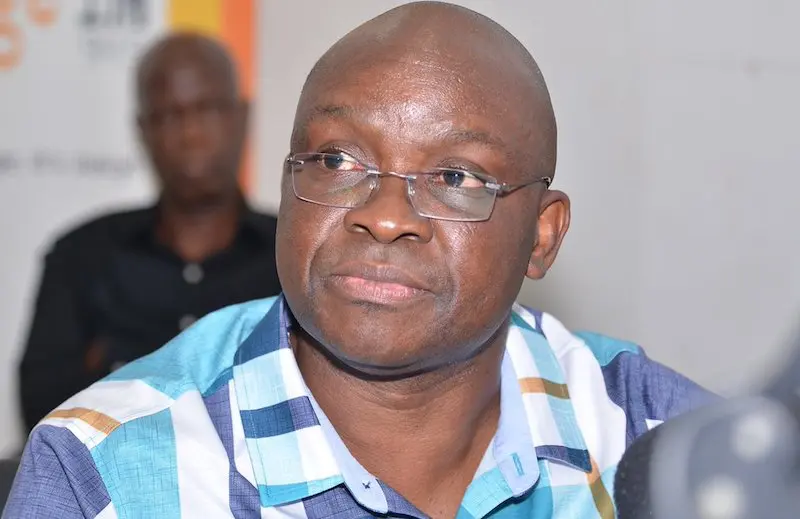Former Ekiti State Governor Ayodele Fayose has declared himself the “record holder” of electoral victories in the southwestern Nigerian state, citing his past successes as evidence of unmatched political influence. The statement came during a campaign rally for the All Progressives Congress (APC) in Ado Ekiti, where Fayose—a prominent figure in the opposition Peoples Democratic Party (PDP)—publicly endorsed APC candidates while reaffirming he would not defect to the ruling party.
Speaking to supporters on Monday, Fayose emphasized his electoral track record, claiming victories across all 16 Local Government Areas (LGAs) and 58 electoral wards during previous contests. “I don’t mention names because I’m a gentleman, but I defeated opponents comprehensively, and they conceded defeat,” he said. Despite his PDP affiliation, Fayose urged voters to back APC Governor Abayomi Oyebanji’s bid for re-election, referring to him as “BOA” and expressing confidence the incumbent could surpass his own achievements by securing wins in all 177 wards.
Fayose’s endorsement of Oyebanji and President Bola Tinubu—both APC leaders—marks a rare show of cross-party alignment. He praised the inclusion of former APC chieftain Segun Oni in the governor’s campaign, calling Oni’s support “the icing on the cake” and a unifying move that could serve as a model for other Nigerian states. The former governor also acknowledged defectors from rival parties joining the APC but firmly dismissed speculation about his own political switch. “I congratulate those decamping, but I will never join the APC,” he stated.
The remarks highlight shifting alliances ahead of Ekiti’s governorship election, with Fayose leveraging his reputation to bolster support for Oyebanji despite lingering party divisions. Analysts note the former governor’s vocal backing could sway undecided voters, given his historical influence in the state. However, his refusal to formally align with the APC underscores ongoing tensions within Nigeria’s political landscape, where personal loyalties often intersect with party rivalries.
Fayose’s speech concluded with a call for peaceful, participatory elections, urging citizens to “make this election a reality” through robust voter turnout. The event, attended by APC supporters and defectors, underscored the fluidity of Nigerian politics, where coalition-building and strategic endorsements frequently shape electoral outcomes. As campaigns intensify, observers will monitor whether Fayose’s claims of invincibility translate into tangible gains for his preferred candidates—or reignite debates about the durability of cross-party partnerships.
